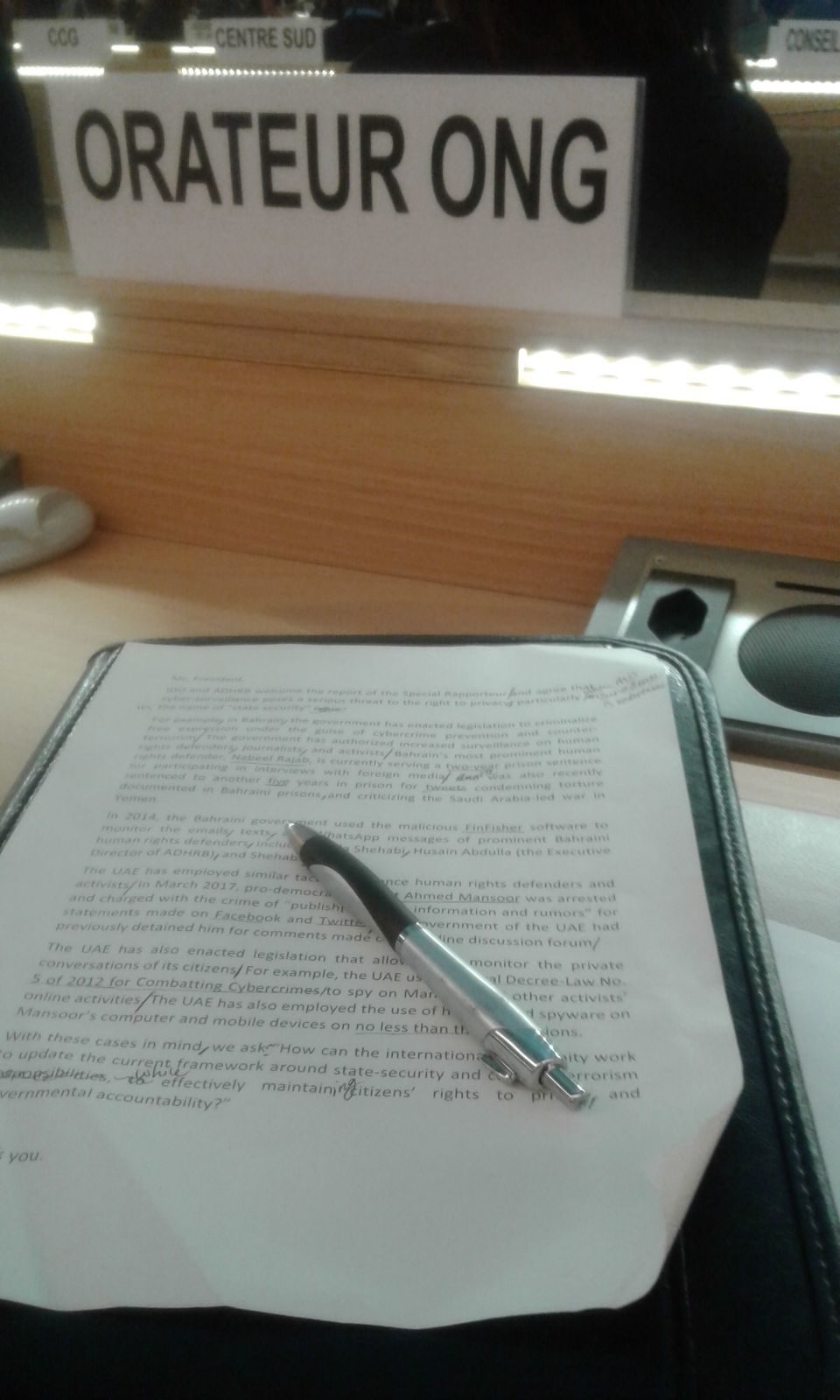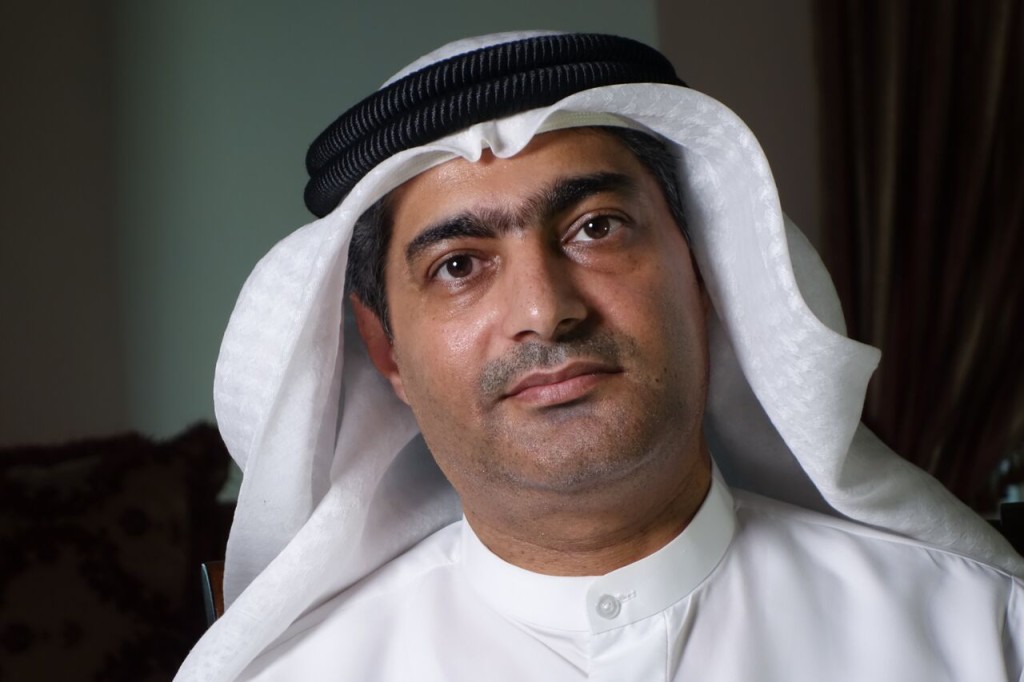Introduction The United Arab Emirates (UAE) has rapidly positioned itself as a leader in artificial intelligence (AI), integrating advanced technologies across various sectors to drive economic growth and enhance governance. Central to this strategy is the deployment of AI-driven surveillance systems aimed at increasing national security and public safety. However, the extensive use of such[…]
With the global rise of Artificial Intelligence (AI), countries have increasingly adopted regulations to restrict the use of this new technology, exemplified by the AI Act in the European Union. In contrast, Gulf governments have taken a more business-friendly approach to AI regulation, raising concerns about potential breaches of their populations’ privacy rights. Notably, Saudi[…]
On Tuesday 6 March, at the 37th session of the Human Rights Council, ADHRB’s legal fellow, Bridget Quitter delivered an intervention during the Clustered Interactive Dialogue with the Special Rapporteurs on privacy and sale of children. In her intervention, she raised the Bahraini and Emirati government’s use of cyber technology to spy on their citizens,[…]
This week marks 100 days of blogger and pro-democracy activist Ahmed Mansoor’s arbitrary imprisonment in the United Arab Emirates. Having been awarded the Martin Ennals Award for his exceptional work as a human rights defender, Mansoor is one of the most prominent activists in the Gulf region. On 20 March 2017, Mansoor was accused of[…]
5 January 2017 – Bahrain today restored law enforcement abilities to its National Security Agency (NSA), an institution which oversaw torture of protesters in 2011. The move reverses one of the few post-Arab Spring reforms outlined in the Bahrain Independent Commission of Inquiry (BICI). The reversal comes after an escalated human rights crisis in 2016,[…]
- 1
- 2









